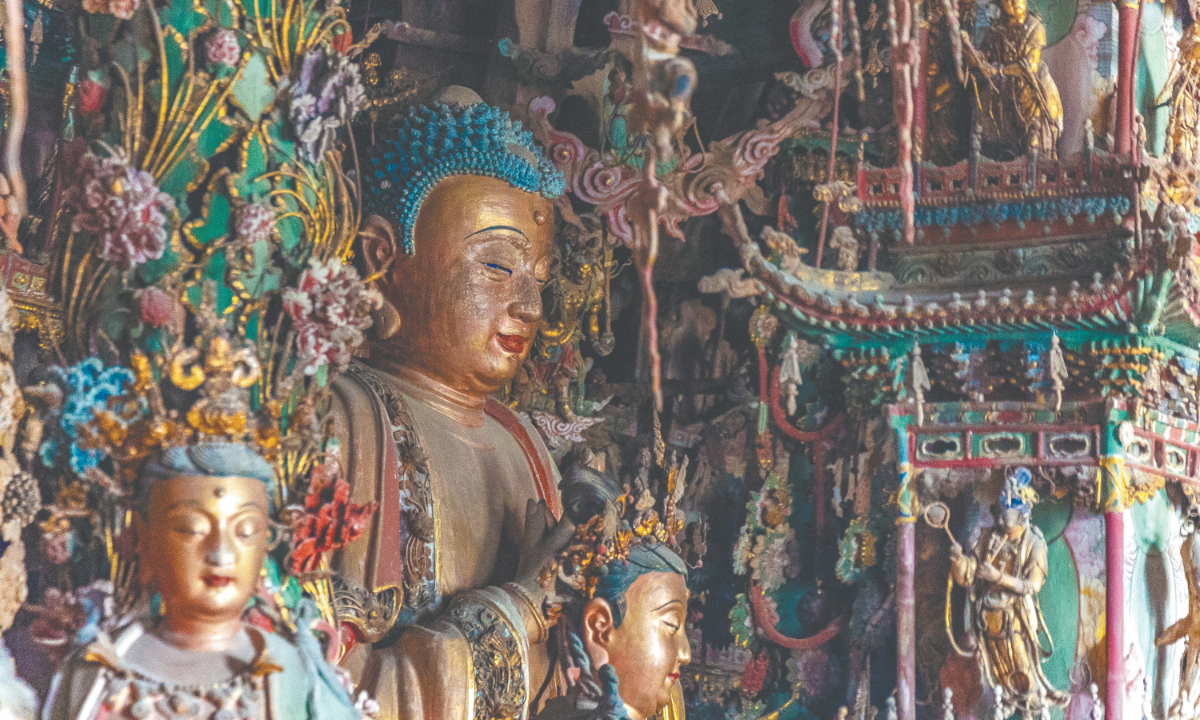 mk a historical site from the Ming Dynasty (1368–1644), in Xixian county, North China’s Shanxi Province Photo: Li Hao/GT" />
mk a historical site from the Ming Dynasty (1368–1644), in Xixian county, North China’s Shanxi Province Photo: Li Hao/GT" />Buddha statues inside the Xiao Xi Tian Temple, a historical site from the Ming Dynasty (1368–1644), in Xixian county, North China’s Shanxi Province Photo: Li Hao/GT
This past week, the legendary Monkey King, Sun Wukong, has re-emerged from ancient scrolls, enchanting the world with his timeless adventures. As
Black Myth: Wukongtakes the gaming world by storm, conversations are shifting beyond the gameplay to uncover the rich cultural treasures woven into its fabric - like the breathtaking ancient architecture and intricate statues that breathe life into this epic tale.
On Tuesday, the Chinese gaming industry hit a major milestone with the global release of
Black Myth: Wukong, a AAA action RPG. Created by Game Science, this epic adventure draws from the legendary Journey to the West, letting players step into the shoes of a destined hero on a wild, perilous journey.
Within just hours of its launch, the game shot to the top of Steam's most-played list for a single-player game, sparking a frenzy of excitement across social media.
But it's not just the game- play that has everyone talking.
Black Myth: Wukongstands out for its stunning, lifelike portrayal of ancient Chinese architecture and cultural heritage.
With 36 in-game locations meticulously modeled after real-world sites, including 27 in North China's Shanxi Province - known for its rich historical relics - the game offers players a visually immersive experience like no other, the People's Daily reported.
According to the Xinhua News Agency, to crafta truly immersive, world-class game, the game company Game Science spent years capturing foot- age from historical and cultural sites across China. They used real-world scanning technology to upload digital models of ancient buildings, statues and sculptures into Unreal Engine 5, a real-time 3D creation tool, laying the foundation for an ultra- realistic experience.
The impact of Black Myth: Wukong has gone be- yond the screen, creating a ripple effect in cultural tourism.
The heritages shown in the game have seen a surge in interest. Shanxi's tourism search volume jumped by over 10 percent on launch day, with his- torical sites like Xiao Xi Tian Temple and Yuhuang Temple becoming must-see destinations for fans eager to explore the game's real-world inspirations.
In a savvy move, tourism boards across regions like Shanxi are now rolling out "Follow Wukong" travel campaigns, inviting gam- ers to experience the beauty and history that inspired the game.
With millions of "Monkes" joining the journey,
Black Myth: Wukonghas unleashed Sun Wukong's legendary power, turning him into a magic force that is propelling China's ancient wonders into the spotlight.
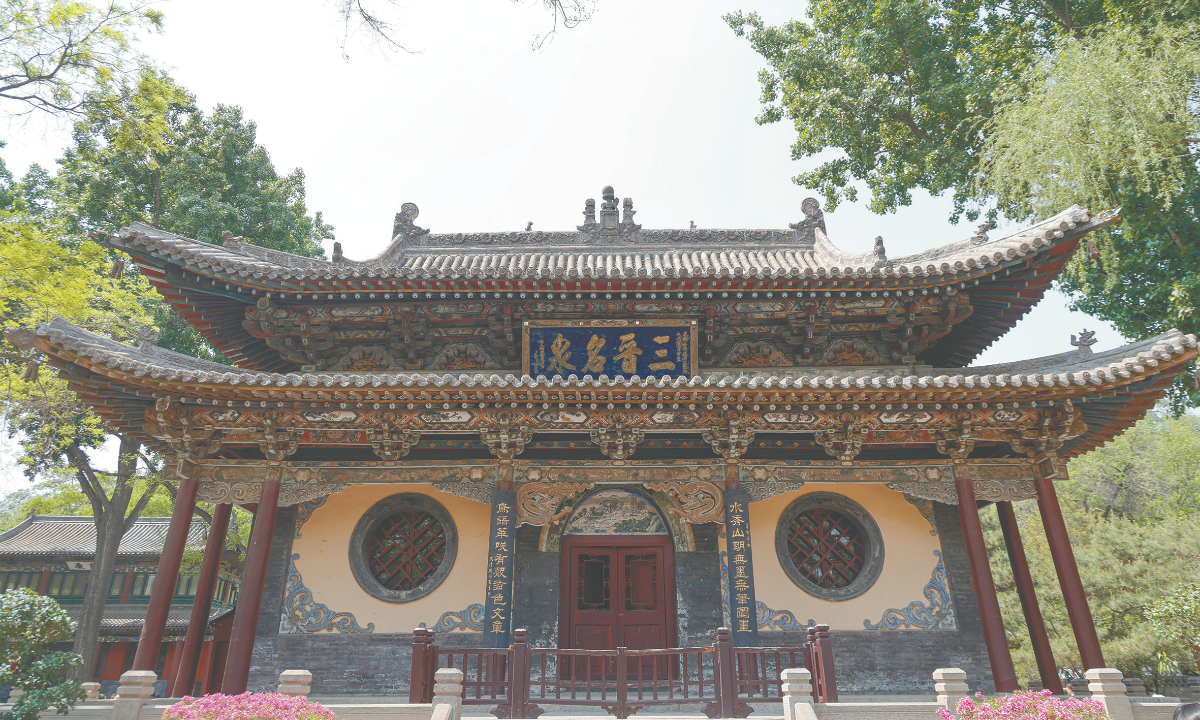
The Jinci Temple, a historic site dating back to the Song Dynasty (960–1279), in Taiyuan, North China’s Shanxi Province Photo: Li Hao/GT
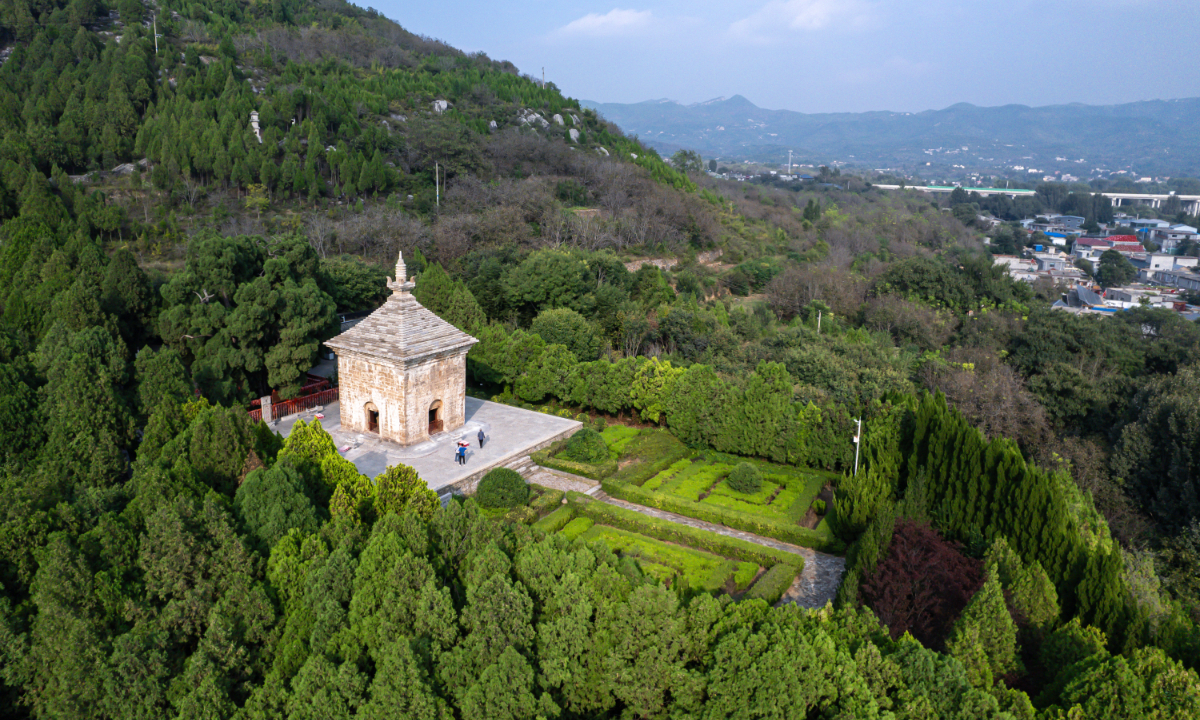
The Four Gates Pagoda, built during the Sui Dynasty (581–618), in Jinan, East China’s Shandong Province Photo: VCG
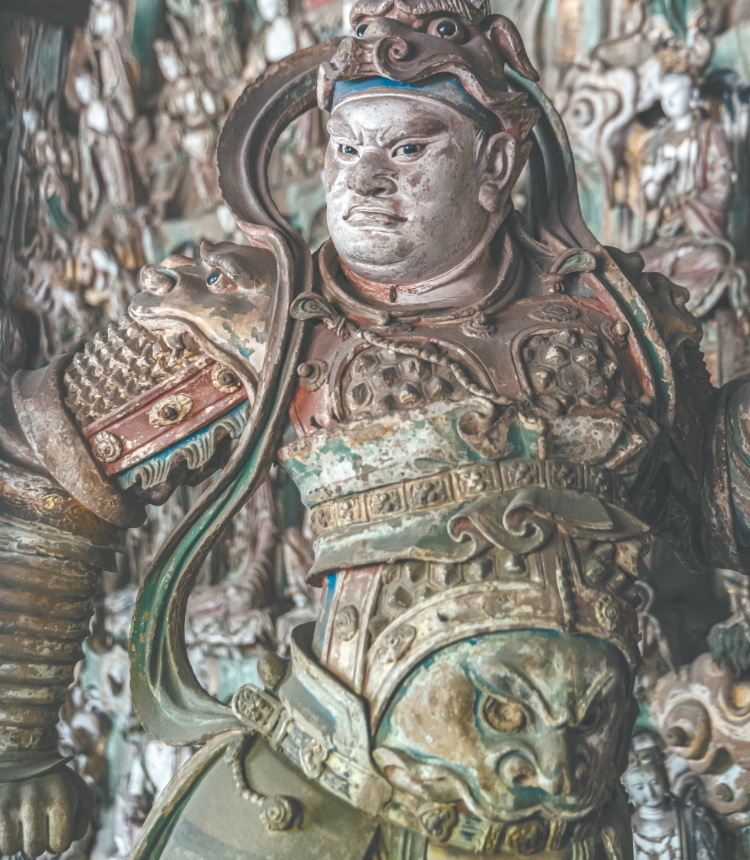
A statue in the Shuanglin Temple in Pingyao, North China’s Shanxi Province Photo: Li Hao/GT
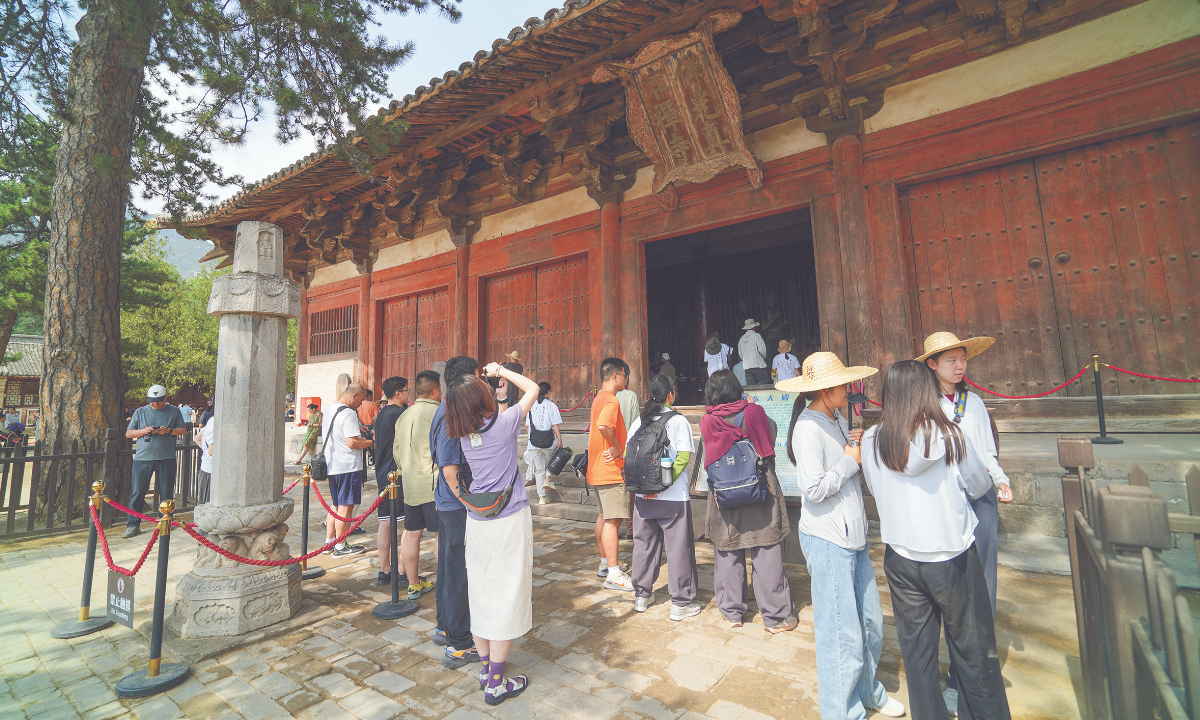
Visitors appreciate the beauty of the Foguang Temple, dating back to the Tang Dynasty (618–907), located on Mount Wutai in Shanxi Photo: VCG
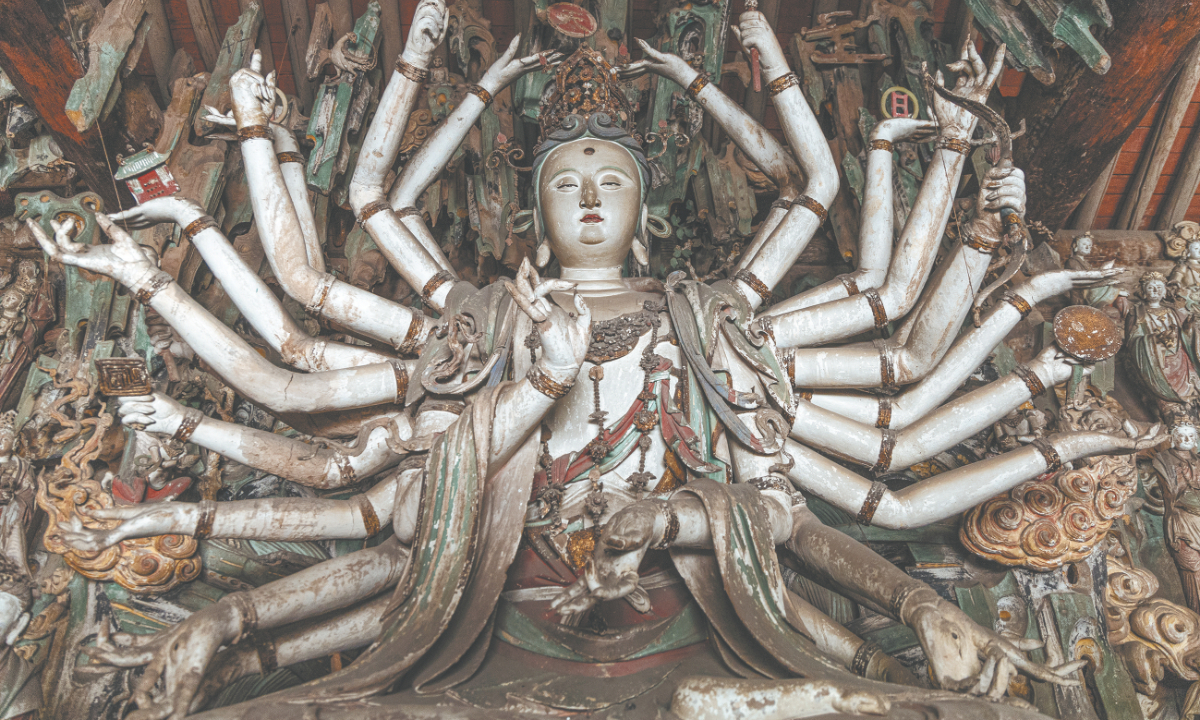
An intricate statue inside the Shuanglin Temple in Pingyao, North China’s Shanxi ProvincePhoto: Li Hao/GT
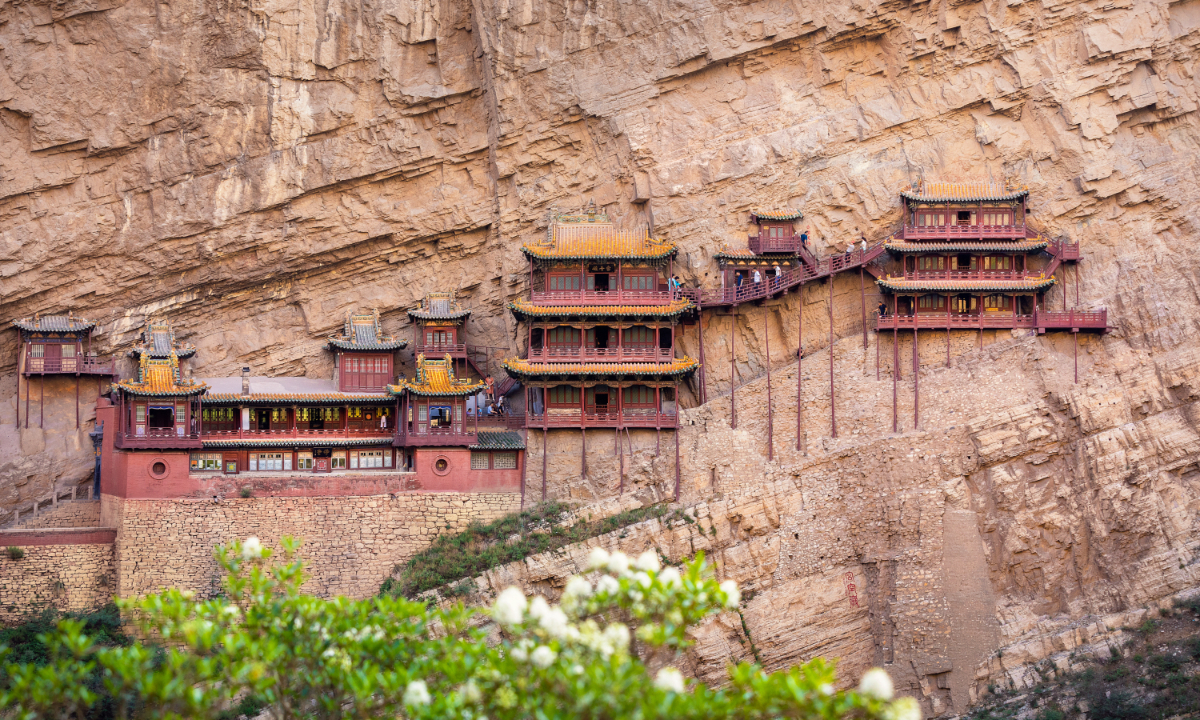
The Hanging Temple, an ancient monastery built during the Northern Wei Dynasty (386–534), perched on a cliff in Shanxi Province Photo: VCG

 mk a historical site from the Ming Dynasty (1368–1644), in Xixian county, North China’s Shanxi Province Photo: Li Hao/GT" />
mk a historical site from the Ming Dynasty (1368–1644), in Xixian county, North China’s Shanxi Province Photo: Li Hao/GT" />




